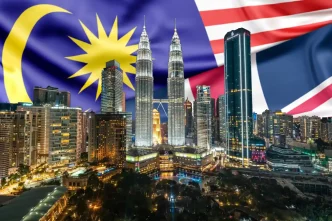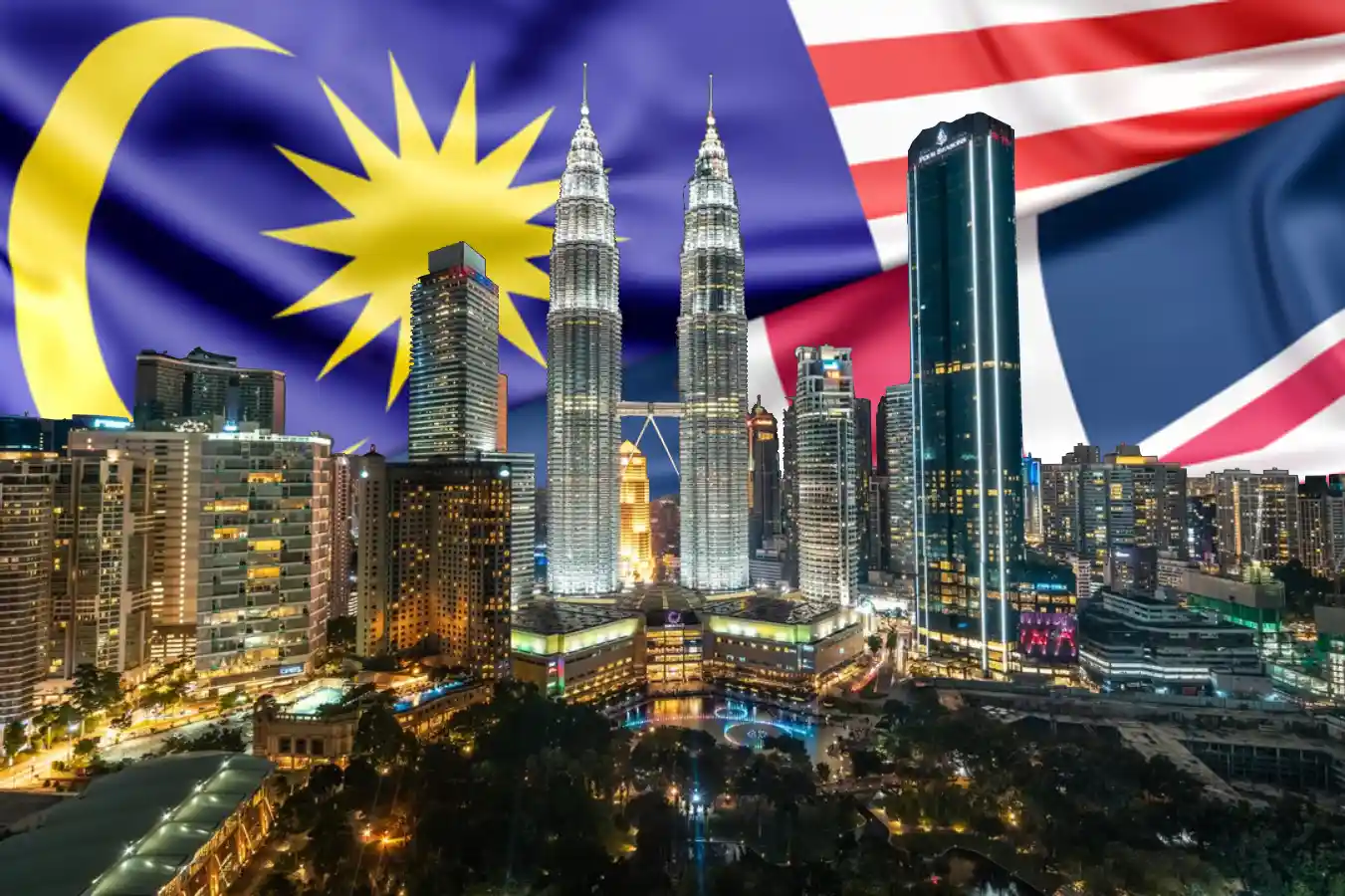Malaysia is poised to deepen its bilateral ties with the United Kingdom across a range of strategic sectors, following a high-level meeting in London between Malaysian Deputy Prime Minister Datuk Seri Dr Ahmad Zahid Hamidi and British Secretary of State for Environment, Food and Rural Affairs Steve Reed. The discussions, held during Ahmad Zahid’s four-day working visit to the UK, underscored Malaysia’s ambition to position itself as a regional leader in technical education, sustainable development, and green energy, while exploring new avenues for trade and environmental cooperation.
Technical Education and Industry Collaboration
Central to the talks was Malaysia’s commitment to becoming the Asean Hub for Technical and Vocational Education and Training (TVET) Certification and Excellence. Ahmad Zahid emphasized the focus on high-value industries such as semiconductors, electric vehicles (EV), aerospace, and green energy. “I conveyed Malaysia’s intention to expand collaboration with UK academic institutions and industries to enhance TVET training, certification, and the employability of Malaysian graduates” he told reporters during his visit on June 2, 2025. This initiative aims to equip Malaysian workers with globally competitive skills, addressing the growing demand for expertise in cutting-edge sectors.
The emphasis on TVET aligns with Malaysia’s broader economic strategy to transition into a high-income nation by fostering innovation and industrial growth. Analysts suggest that partnerships with UK institutions, known for their rigorous vocational programs, could provide a blueprint for Malaysia to overhaul its education-to-employment pipeline. If successful, this collaboration could serve as a model for other Asean nations grappling with similar challenges in workforce development.
Rural Development and Environmental Lessons
Beyond education, the meeting tackled rural development, with Malaysia expressing a keen interest in learning from the UK’s approach to transforming rural areas into sustainable economic zones. Ahmad Zahid highlighted the potential for knowledge exchange in disaster management, access to clean water, and the adoption of new technologies to build resilience against climate change. “We also discussed matters related to disaster management and the use of new technologies to strengthen resilience against global climate change” he said.
A particular focus was placed on environmental challenges, notably the rehabilitation of polluted rivers. Ahmad Zahid pointed to the UK’s success in addressing river pollution as a potential roadmap for Malaysia, which continues to face significant issues in this area. “We need to take heed of how polluted rivers have become a thing of the past in the UK as we are still facing the same problem” he noted. He stressed that raising public awareness would be the first step in tackling this persistent issue, signaling a push for community engagement alongside policy reform.
Environmental sustainability emerged as a shared priority, with both leaders agreeing on the importance of long-term programs that outlast political cycles. “Both of us concurred that leaders come and go but such programs must continue” Ahmad Zahid added. This commitment to continuity could pave the way for enduring environmental policies that transcend short-term political agendas.
Renewable Energy and Climate Finance
The discussions also ventured into renewable energy, with Malaysia expressing readiness to partner with the UK on initiatives like the reactivation of the Asean Power Grid and investments in solar and green energy. Ahmad Zahid noted the UK’s establishment of GB Energy, a national clean energy company, as a positive signal of its dedication to the green agenda. “I expressed Malaysia’s readiness to be a strategic partner in this development” he said.
In a novel approach to funding sustainable development, Ahmad Zahid proposed the use of Islamic financial instruments such as sukuk to support climate finance. He also highlighted Malaysia’s efforts to bolster the global halal industry through the establishment of a World Halal Council and a unified halal logo, aimed at reinforcing international consumer confidence in Malaysian standards. This dual focus on green energy and ethical finance underscores Malaysia’s intent to align economic growth with cultural and environmental values.
While these proposals are ambitious, their success may hinge on navigating complex international regulatory frameworks and securing buy-in from private sector stakeholders. If realized, however, they could position Malaysia as a leader in sustainable finance within the Asean region, potentially attracting further foreign investment.
Strengthening Trade and Business Ties
Trade relations were another cornerstone of the meeting, with both nations reaffirming their commitment to frameworks like the Comprehensive and Progressive Agreement for Trans-Pacific Partnership (CPTPP). Ahmad Zahid emphasized the importance of increasing business-to-business engagement between the private sectors of Malaysia and the UK. “I believe this meeting has opened new avenues to elevate Malaysia-UK cooperation to a more strategic level, especially in building a more inclusive, sustainable, and resilient future” he said.
Economic analysts view this renewed focus on trade as a strategic move for Malaysia, which seeks to diversify its export markets amid global economic uncertainties. The UK, post-Brexit, is equally eager to strengthen ties with fast-growing economies in Southeast Asia. Collaborative ventures in high-tech industries and green energy could yield mutual benefits, though challenges such as differing regulatory standards and market access barriers may need to be addressed.
Engaging the Malaysian Diaspora
On a more personal note, Ahmad Zahid hosted a gathering for Malaysians in the UK, including 60 Mara-sponsored students, on the evening of June 2, 2025. He urged the students to return home after completing their studies to contribute to Malaysia’s development. “While the salaries here might be substantially higher, returning and helping to develop the country further is priceless and much more meaningful” he advised. This call to action reflects a broader governmental push to reverse brain drain and harness overseas talent for national progress.
The engagement with the diaspora also serves as a reminder of the human dimension of international partnerships. For many Malaysian students and professionals in the UK, such interactions with national leaders can foster a sense of connection and responsibility toward their homeland, potentially influencing their career decisions.
Broader Implications for Malaysia-UK Relations
The outcomes of this meeting signal a new chapter in Malaysia-UK relations, one characterized by a shared vision for sustainability, innovation, and economic growth. From TVET collaborations to environmental initiatives, the scope of cooperation is broad, touching on issues of immediate national importance as well as long-term global challenges like climate change.
However, the road ahead is not without obstacles. Implementing large-scale educational reforms, securing funding for green projects, and aligning trade policies will require sustained effort and coordination. Questions also remain about how these initiatives will be received domestically in Malaysia, where public support for international partnerships can vary depending on perceived economic benefits.
Moreover, the emphasis on Islamic finance and halal industry standards introduces a cultural dimension to the partnership, one that could differentiate Malaysia’s approach from other Asean nations vying for UK investment. If navigated sensitively, this could enhance Malaysia’s unique position in the global market, blending economic ambition with cultural identity.
Looking Ahead
As Malaysia and the UK chart this collaborative path, the focus will likely shift to actionable outcomes—whether in the form of signed agreements, joint ventures, or pilot projects in rural development and green energy. For now, the discussions in London have laid a promising foundation, raising hopes for a partnership that could serve as a model for bilateral cooperation in the region. How these commitments translate into tangible results, however, remains a critical question for both nations in the months and years ahead.















